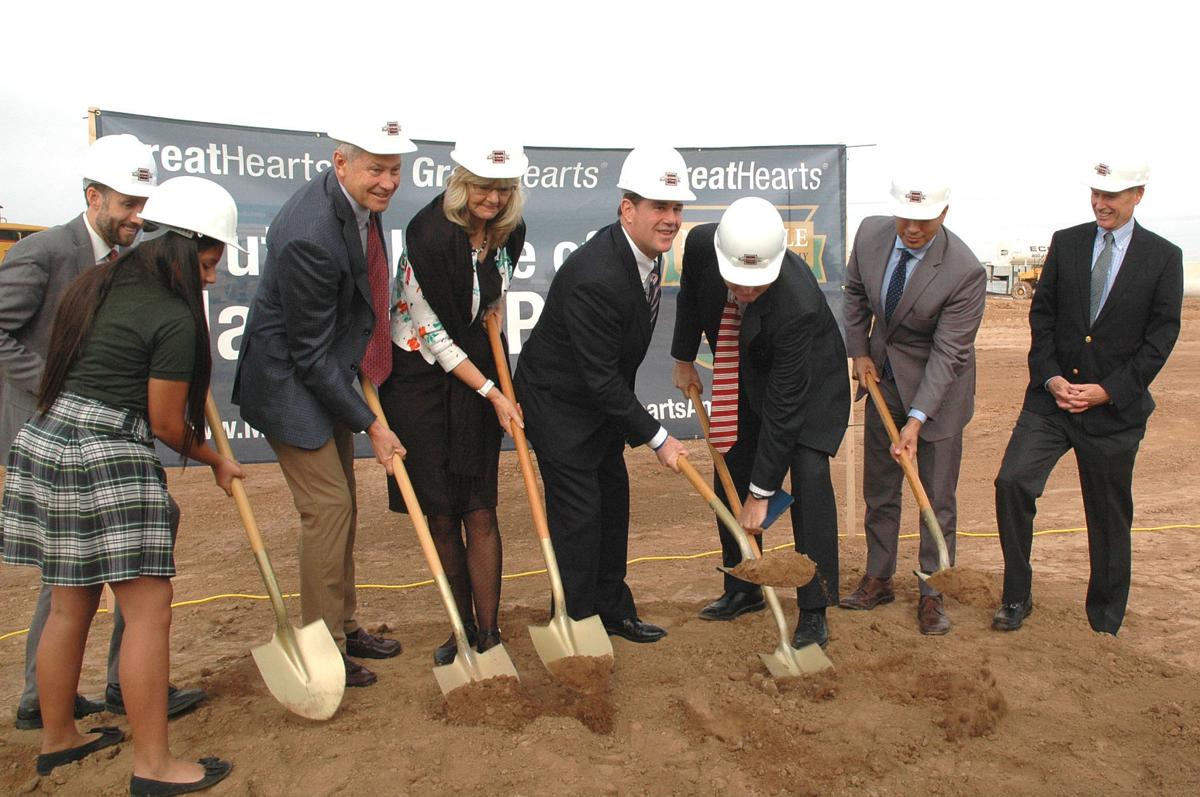PHOENIX — Gov. Doug Ducey disputes a report by a left-leaning research group that Arizona is spending less on K-12 education today than before the recession when inflation is taken into account.
“That’s a false report by a left-wing public interest group,” Ducey said Wednesday of the report from the Center for Budget and Planning Priorities. “It’s up 10 percent since 2015,” he said of state education funding. “It’s above per-pupil rates, inflation adjusted since the Great Recession.”
But figures obtained by Capitol Media Services from state legislative budget staffers paint a different picture than Ducey’s of what’s happened since before the recession.
The Joint Legislative Budget Committee says state aid to K-12 education in the 2007-2008 school year was $5.12 billion. That has increased to $5.33 billion in the current budget year.
On a per-student basis, however, the figures went from $4,949 to $4,760 during the same period. And when accounting for inflation, the current per-student figure is less than $4,200.
Ducey said the state really had no choice but to cut funding during the recession. “We went through a tremendous downturn,” he said.
Now, he said, the budget is balanced. He also touted the $163 million in additional dollars put into K-12 this past budget year above requirements to cover inflation and student growth.
Only half of that $163 million is ongoing funding, with the rest being a one-time infusion, mostly for new school construction.
The report by the Center for Budget and Planning Priorities acknowledges that things have gotten better lately. But its numbers, over the whole period, are pretty much in line with those of the Joint Legislative Budget Committee.
And gubernatorial press aide Daniel Scarpinato later acknowledged that inflation-adjusted student aid is still below where it was in the 2007-2008 school year, before the recession.
“We think we’ll be back at 2008 at some point,” he said.
Ducey’s response to the report followed an event where he helped break ground for a charter school for Great Hearts Academies in west Phoenix, being built, at least indirectly, with the help of the state treasury. The nonprofit organization runs 29 schools in Arizona and Texas.
Ducey pushed a measure through the Legislature in 2016 for “credit enhancements” for charter schools, in which the state effectively guarantees lenders that the loans will be paid back. That assurance, in turn, lowers the interest rate that lenders charge.
In this case, Great Hearts spokesman Bill Odell said the state’s backing of its $16 million bond reduced interest by about a quarter point, saving the school about $4 million over the life of the loan.
The governor said his goal is to create more educational opportunities, as the loan guarantees enable schools with waiting lists to construct new campuses.
Asked about what’s happening at traditional neighborhood public schools, particularly in low-income areas, Ducey said, “We have not been providing the education those kids deserve.” Finding ways to build more charter schools “is part of the solution,” he said: “This is one more tool in the toolbox.”
The state faces a lawsuit filed by officials of traditional public schools. They say the state is failing to meet its legal obligations to construct new schools, make major repairs, and provide money for other capital needs ranging from computers to buses. No date has been set for a hearing.





